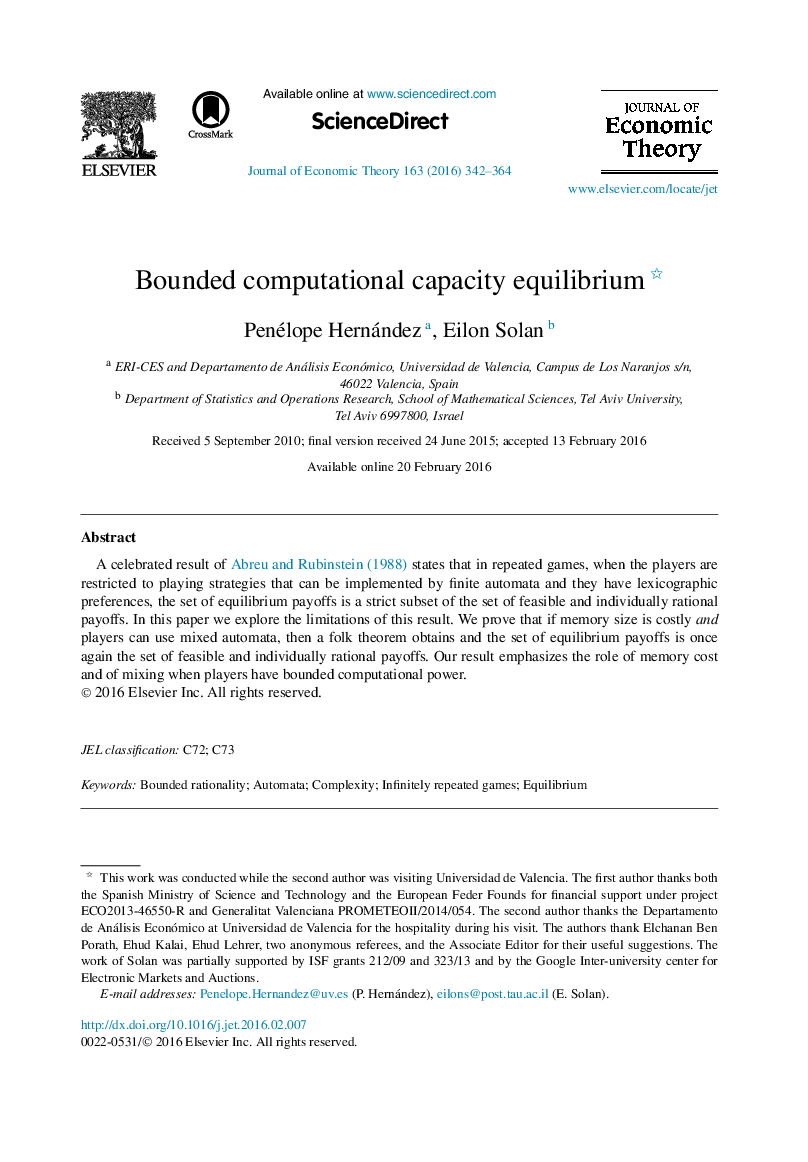| Article ID | Journal | Published Year | Pages | File Type |
|---|---|---|---|---|
| 956676 | Journal of Economic Theory | 2016 | 23 Pages |
Abstract
A celebrated result of Abreu and Rubinstein (1988) states that in repeated games, when the players are restricted to playing strategies that can be implemented by finite automata and they have lexicographic preferences, the set of equilibrium payoffs is a strict subset of the set of feasible and individually rational payoffs. In this paper we explore the limitations of this result. We prove that if memory size is costly and players can use mixed automata, then a folk theorem obtains and the set of equilibrium payoffs is once again the set of feasible and individually rational payoffs. Our result emphasizes the role of memory cost and of mixing when players have bounded computational power.
Related Topics
Social Sciences and Humanities
Economics, Econometrics and Finance
Economics and Econometrics
Authors
Penélope Hernández, Eilon Solan,
